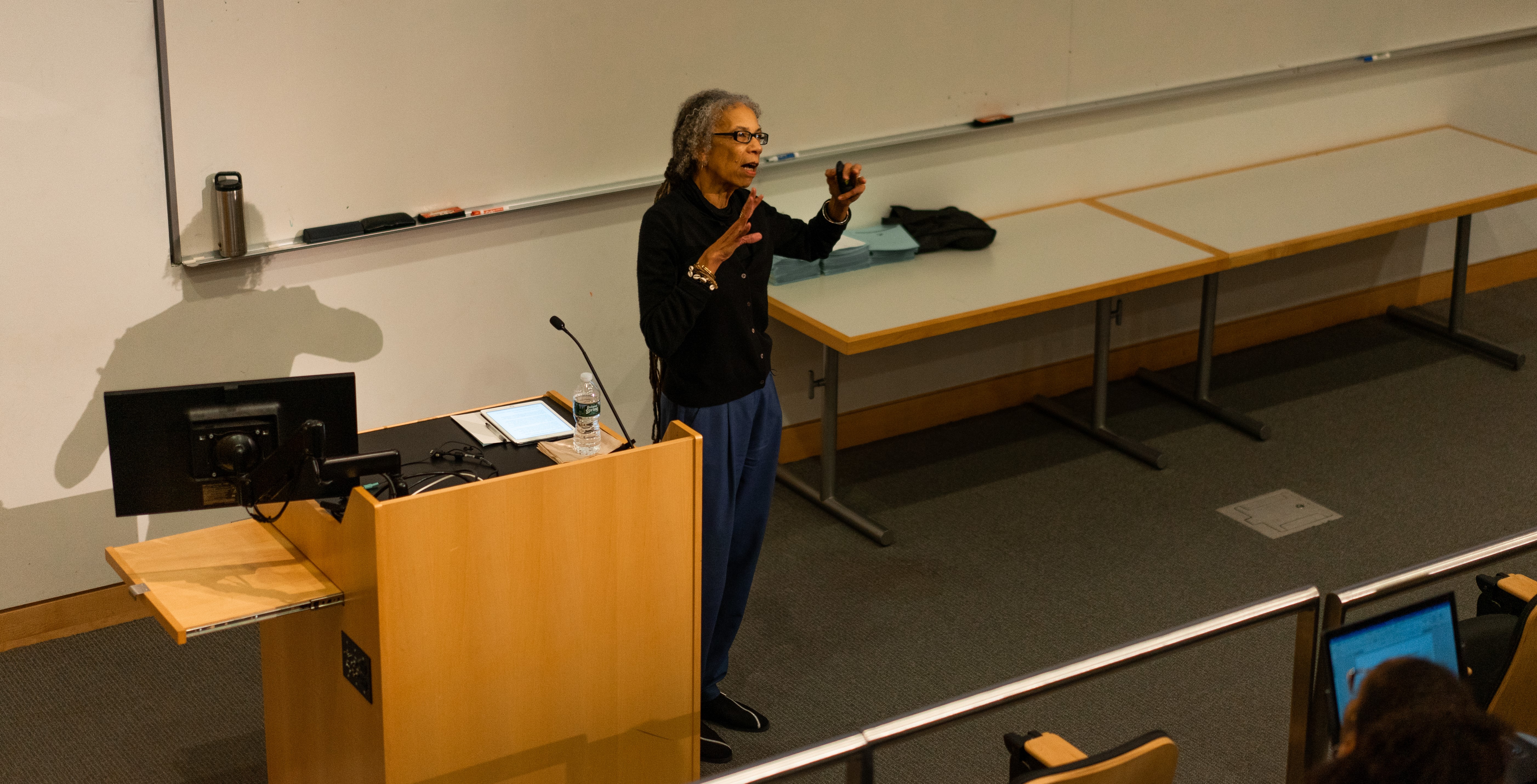Meanwhile (Parts I & II) | November 18 & 19, 2019
These lectures explore how a small group of organizers combined experience with theoretical insights to create an abolition geography that weakened California's long-thickening carceral geography. What are some tasks organizers set for themselves? What kinds of social and spatial challenges arose? How did engagement with problems -- including organizers' political and rhetorical failures -- encourage consciously renovated participation in rural and urban contexts? Focusing on questions of race, gender, labor, age, status, long-distance migration, and changing state forms, the California cases provide insights that articulate with work elsewhere in the United States as well as abroad on a strong tendency in contemporary racial capitalism.
About Ruth Wilson Gilmore
Ruth Wilson Gilmore serves as a professor of geography in the doctoral program in earth and environmental sciences and as associate director of the Center for Place, Culture and Politics. Her wide-ranging research interests include revolution and reform, environments and movements, prisons, urban–rural continuities, and the African diaspora. From 2010 to 2011, she was president of the American Studies Association (ASA), the nation’s oldest and largest association devoted to the interdisciplinary study of American culture and history.
Gilmore was already known as an activist and an intellectual when she came to the Graduate Center from the University of Southern California in Fall 2010. In her first book, Golden Gulag: Prisons, Surplus, Crisis, and Opposition in Globalizing California (2007), which ASA recognized with its Lora Romero First Book Award, she examined how political and economic forces produced California’s prison boom. In the 2012 DVD “Visions of Abolition: From Critical Resistance to a New Way of Life,” Gilmore joins other scholars to examine the prison system and the history of the prison abolition movement. Her work is widely anthologized, including in the groundbreaking essay compilation The Revolution Will Not Be Funded: Beyond the Non-Profit Industrial Complex (2007; pbk., 2009).
In 2012, the ASA honored Gilmore with its Angela Davis Award for Public Scholarship, an award that recognizes scholars who have applied or used their scholarship for the “public good.” Gilmore lectures widely and works regularly with community groups and grassroots organizations and is known for the broad accessibility of her research. She holds a Ph.D. in economic geography and social theory from Rutgers University.

